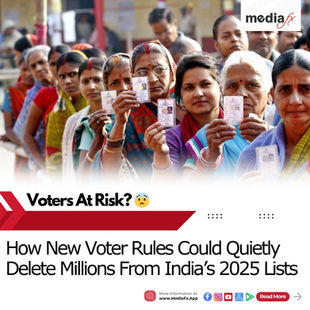🚨🎮 Big Fight: India’s Online Money Games Ban Lands in Court!⚖️
- MediaFx

- Aug 28, 2025
- 2 min read
TL;DR 📰 – India’s new law banning real-money online games like rummy, poker & fantasy sports is already facing heat. A23 (Head Digital Works) has gone to the Karnataka High Court, saying the ban kills jobs, hurts startups, and ignores that these are skill-based games. Govt says it’s to stop addiction, but lakhs of workers & gamers may lose out. First hearing: August 30.

🎲 Gaming Goes to Court
India recently passed a big new law called the Promotion & Regulation of Online Gaming Act, 2025. This law bans online money-based games like poker, rummy and fantasy cricket, even though many courts earlier said these are skill-based games.
Now, A23 (Head Digital Works) – one of India’s leading gaming platforms – has filed a case in the Karnataka High Court. They argue the ban is destroying India’s gaming industry, wiping out jobs, and pushing small players out of business. The first hearing is on August 30.
💸 Industry in Shock
After the law, big names like Dream11 and MPL (Mobile Premier League) already stopped their real-money games. Dream11 even said 95% of its revenue vanished overnight.
But here’s the surprise – neither Dream11 nor MPL is fighting the ban in court. Only A23 has decided to challenge it legally.
🏛️ Why Did Govt Ban It?
The government says the law is needed to stop addiction, gambling and social problems. They argue that people, especially youth, are losing money and falling into debt traps.
The law also sets up a National Online Gaming Commission (NOGC) to classify games:
Skill-based (allowed with restrictions)
Chance-based (totally banned)
Hybrid games (case-by-case decision)
This might sound fair, but for thousands of workers in gaming startups, this law means instant unemployment.
📊 Big Money at Stake
India’s real-money gaming market was expected to reach $3.6 billion by 2029.
Now, investors are pulling back, startups are freezing projects, and companies are shutting down offices.
Gamers in small towns, who used to earn pocket money through fantasy cricket or rummy, suddenly lost that source of income.
👥 People’s Angle
The government says it is protecting the youth, but lakhs of working-class young people who depended on these platforms for jobs and extra income are being ignored. Big corporates may survive by shifting to advertising or esports, but small creators, coders, and local startups will collapse.
Instead of a total ban, people-friendly steps could include:
Putting limits on betting amounts
Offering counselling and addiction support
Collecting tax from companies and using it for public services
🗣️ MediaFx Take
From a people’s perspective, this law feels more like punishment than protection. Workers, freelancers, and small startups will be the biggest losers, while wealthy gaming giants may find loopholes.
📌 Addiction should be controlled, but livelihoods of common youth should not be destroyed.













































